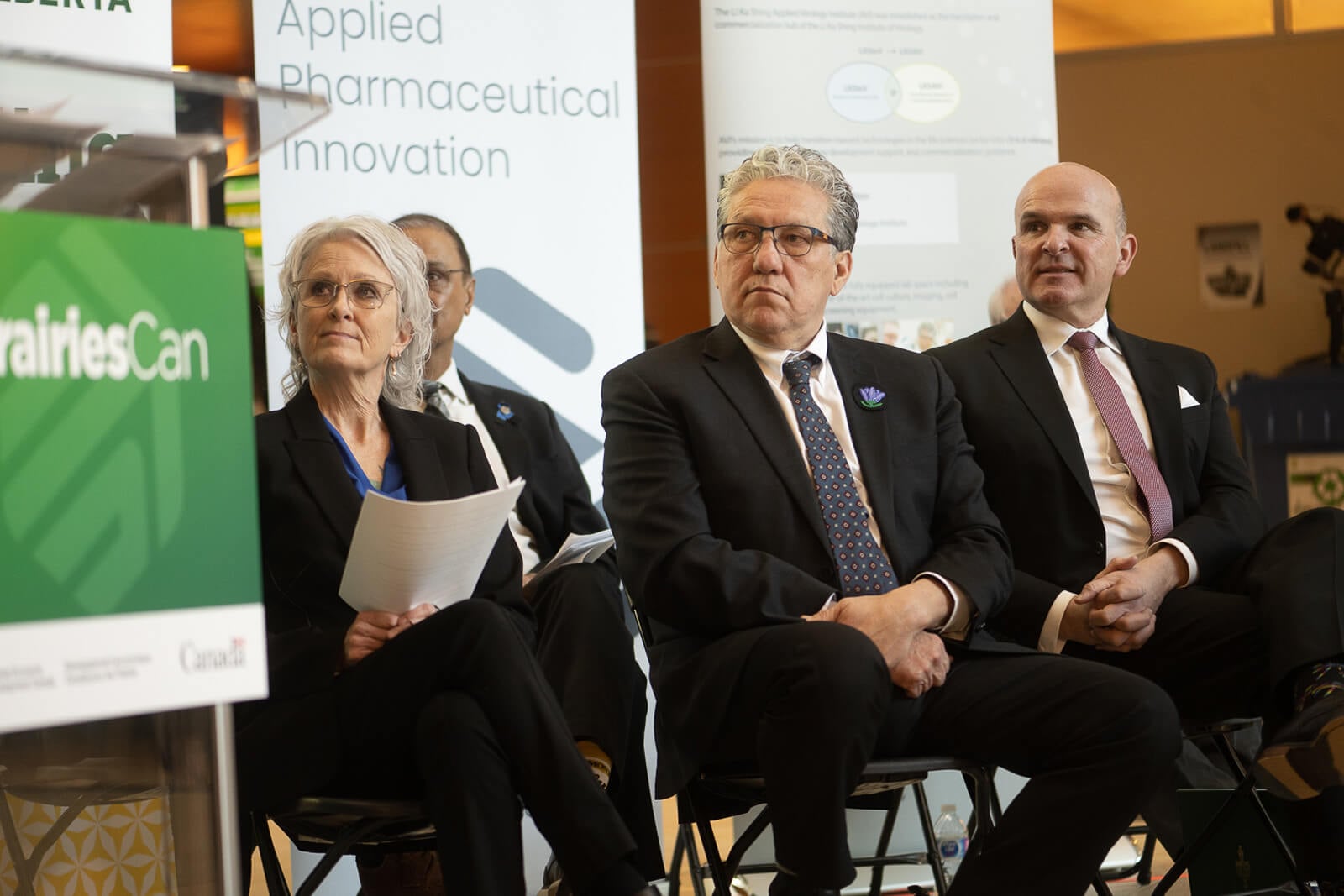Government of Canada funds the Canadian Critical Drug Initiative, growing capacity for drug research, development and manufacturing
The Government of Canada has invested $80.5 million in the Canadian Critical Drug Initiative (CCDI), a revolutionary project that will boost drug research, commercialization and manufacturing in Alberta.
Led by API in partnership with the Li Ka Shing Applied Virology Institute (LKSAVI) at the University of Alberta, this funding leverages the talent and expertise in the Edmonton region that makes it an ideal location for drug development.
“Today is a great day for the life sciences industry in Edmonton, Alberta and Canada,” said Andrew MacIsaac, CEO of Applied Pharmaceutical Innovation (API). “This project will be helping researchers develop their ideas in Canada instead of exporting them abroad, producing drugs important to Canadians’ health, and boosting the economy. We’re very grateful to the Government of Canada for this support.”
Producing needed drugs and developing new medicines
The CCDI project will address two goals with drug development. First, it will produce drugs that are in short supply, and second, it will develop promising new drugs, particularly those being created at the Li Ka Shing Applied Virology Institute (LKSAVI).
“CCDI fills a gap in manufacturing small molecule therapeutics for the country,” said Sir Michael Houghton, co-recipient of the 2020 Nobel Prize in medicine, director of the LKSAVI and professor of medical microbiology and immunology. “It will help Canada be better prepared for future and current pandemics, as well as helping to develop drugs and vaccines against common major diseases for which we have no preventatives currently available.”
To accomplish this, the funding will go to building a new 40,000+ sq. ft. manufacturing facility and upgrading the 72,000 sq. ft. Biotechnology Business Development Centre. These facilities will produce small molecule drugs, which make up most pharmaceuticals like anesthetics, anti-histamines, steroids, and have a fill/finish line that will package and label the drugs for distribution.

“This project significantly increases Canada’s capacity for producing small molecule drugs which is important as we’ve relied on foreign suppliers,” said MacIsaac. “This has led to critical shortages in drugs needed by Canadians, and now we’ll be able to produce them here.”
API is working with Alberta Health Services to identify up to four drugs that will be produced at the new facility and address healthcare needs.
Growing capacity for new drug development
These new facilities will also help Canada’s life sciences industry grow. “A lack of production capacity in Canada meant researchers and innovators have had limited ability to commercialize within the country,” said MacIsaac.“When ideas are exported, the economic benefits are often exported as well which is a missed opportunity to diversify and grow our economy.”
The CCDI project is estimated to create more than 350 high quality jobs and will grow API’s capacity to fulfill its mission: to empower life sciences commercialization.
“Our ability to produce batches of small molecule pharmaceutical ingredients, combined with our expertise in the drug development process, will better support life sciences companies from discovery, to clinical trials, to manufacturing. I can’t wait to see what our industry will accomplish,” said MacIsaac.
Prior to the $80.5 million from the Government of Canada, the Government of Alberta contributed $5.6 million to API and $20 million to the Li Ka Shing Applied Virology Institute when Dr. Houghton was awarded the Nobel prize in 2020.




